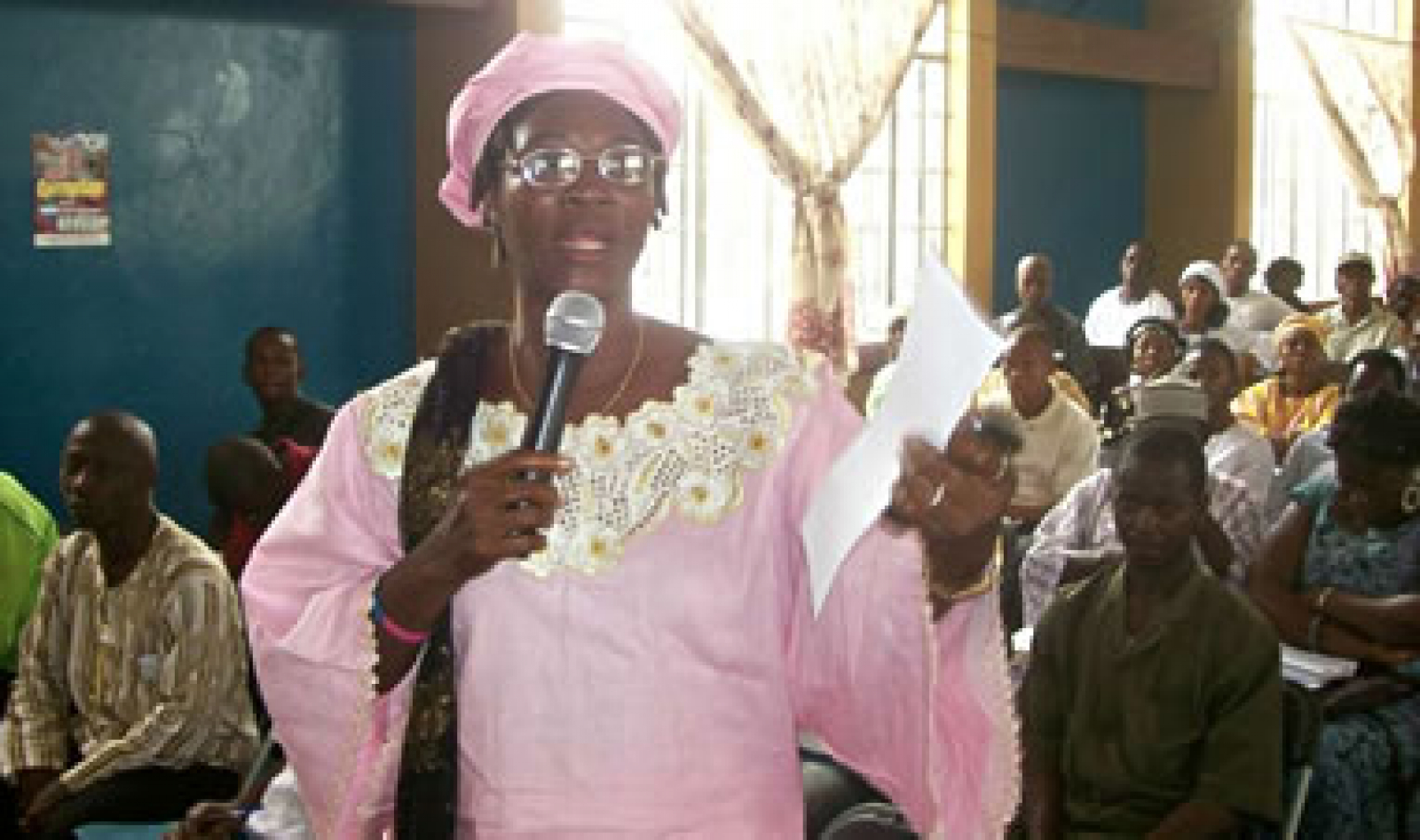
SHARE
As Sierra Leone continues to rebuild after a decade-long civil war, the issue of land reform has emerged as a topic with particular political sensitivity because it cuts across both ethnic and party lines. Moving land reform forward would have positive implications for natural resource management, agricultural production, and addressing the challenges of rapid urbanization in the country.
To explore this topic, NDI worked with Sierra Leone’s Parliament to organize seven town hall meetings in December and January that were attended by nearly 1,500 people. The meetings were held in locations that represented a range of land reform needs (Bo, Freetown, Kailahun, Kambia, Kono, Moyamba, and Port Loko) and brought together representatives of the executive branch, parliament and civil society.
Although Sierra Leone emerged from civil war in 2001, 80 percent of parliamentarians lack experience in lawmaking, representation, and oversight, and have little familiarity with the complexities of land tenure reform. The town hall meetings gave Members of Parliament (MPs) and representatives of the Ministry of Lands, Housing, and Country Planning the chance to engage with constituents and learn about land reform needs at the local level. The meetings also provided an opportunity for all stakeholders in the land reform debate to meet and forge relationships that will be necessary to ensure an inclusive and representative reform process.
Discussions focused on land ownership protection, the judicial process for land dispute resolution, updating colonial era land laws, effective natural resource management, utilizing arable land, aiding business development and other topics. Participants were particularly interested in the issue of unequal access to land for women and youth and illegal possession of land. For example, in many slums, people are squatting on land they do not own, or worse, land that has been sold to multiple people, resulting in a multitude of court cases and occasional violence.
Citizens and lawmakers also discussed government weaknesses, such as lack of staff, the absence of trained surveyors, conflict between statutory and customary land rights, and the lack of enforcement of judicial rulings surrounding land disputes.
In Port Loko, where land ownership is communal, citizens cited ambiguities in their authority to allocate land, which often results in acres lying fallow. In Kono, participants raised concerns about the lack of consultation between the Ministry of Mineral Resources and the local community before the ministry issues contracts to mining companies. In Freetown, participants discussed how a lack of clarity around land tenure hinders development in the capital’s slums.
The program was funded by the United Nations Development Programme (UNDP).
Pictured above: Sierra Leoneans in the city of Bo atend a recent town hall meeting to discuss land reform.
–
Published on March 5, 2009


